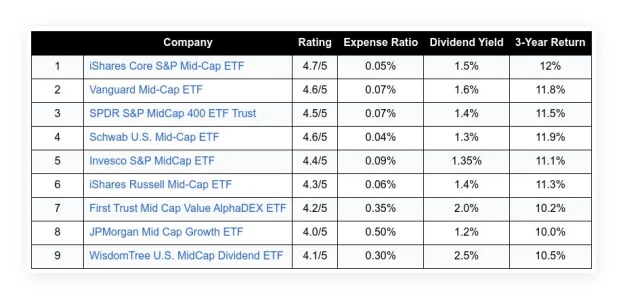Often, trade disputes are resolved by using tariffs, a tax placed on imported goods by a government. However, under his second presidency, Donald Trump has imposed a series of steep tariffs on nearly all imported goods, which have had a significant impact on the U.S. economy, resulting in higher consumer prices, disruption of supply chains, and retaliatory measures from other countries. Additionally, these effects have been expanded, leading to new legal challenges and uncertainty over trade policy.
Although they seem like distant political maneuvers, they directly affect your wallet and economic decisions. From higher grocery bills to pricier electronics, tariffs quietly raise living costs. In fact, a CBS poll finds that four in ten Americans are buying fewer goods as a result of tariffs.
To put it simply, because trade policies can change overnight, it’s smart to protect your personal finances against the worst consequences. So here are some practical, long-term strategies to help you stay resilient no matter what changes in global trade winds come your way.
Table of Contents
ToggleUnderstand How Tariffs Hit Your Budget
Before you can defend against tariffs, you need to know how they work. In a nutshell, tariffs increase imported goods. And, as a result, businesses pass those costs on to consumers.
Specifically, that means:
- Tariffs on agricultural imports may raise food prices. As a consequence, this could put a dent in your budget while grocery shopping.
- It’s possible that clothing, appliances, and electronics will cost more in the future since retailers will have to increase prices due to tariffs.
- Increasing construction costs can affect home projects or rent if landlords pass them on to tenants.
Overall, to take targeted action, you must first identify the most vulnerable budget areas.
Diversify Your Income Streams
In any economic climate, relying on one paycheck is risky. But the risk is even greater if your industry is hard hit by tariffs. As an example, tariffs on imported machinery could slow construction projects, while tariffs on agricultural exports could squeeze farmers’ profits.
When you diversify your income, you reduce your reliance on one sector. You have the following options:
- Start a side business such as freelancing, consulting, or e-commerce.
- Develop a digital product or service that is less dependent on physical goods, such as eBooks, online courses, tutorials, or subscription services.
- Earn a passive income from dividend-paying stocks or rental properties.
Having a modest side income can protect you from the ripple effects of tariffs in your primary industry.
Build a Resilient Budget
When tariffs drive up prices, your budget flexibility will keep you afloat. In other words, you should;
- Identify which categories rise when tariffs are implemented using apps or spreadsheets.
- Always put food, housing, and healthcare first.
- Set aside money for “unexpected inflation” so tariff-driven costs don’t ruin your plan.
Remember, it’s not about cutting to the bone when it comes to a budget; it’s about adaptability.
Strengthen Your Emergency Fund
The purpose of an emergency fund is not only to pay for medical costs or to replace lost income. Furthermore, it protects you from sudden spikes in the cost of living. When tariffs cause short-term price shocks, your emergency fund can bridge the gap if your income doesn’t adjust immediately.
You should aim to save three to six months of living expenses in a high-yield savings account. In the event your grocery or utility bills increase unexpectedly, you’ll have breathing room.
Shop Smarter and Local
What is one of the most direct ways to tariff-proof your finances? You can do that by adjusting where you shop and what you buy.
- Whenever possible, buy locally. Generally, tariffs target imported products, so domestic products remain more affordable. At times, you may find better deals at farmers’ markets, on local brands, or on American-made products.
- Consider bulk buying and discount outlets. If you stock up on essentials before tariffs rise, you’ll save money. Also, shop at discount outlets like Lidl, WinCo, Grocery Outlet, or Aldi.
- Be brand flexible. Don’t be afraid to look for alternatives if you’re tariffed on your favorite electronics or clothing brand.
When tariff cycles begin, consumer habits adjust quickly. So, stay flexible and do your shopping strategically.
Rethink Major Purchases
When tariffs threaten certain imports, the timing of your purchases matters. Here are some examples;
- Before a tariff goes into effect, electronics like laptops and phones may be cheaper.
- If lumber or steel tariffs rise, renovations could cost more.
- There may be a price increase for vehicles with foreign-made parts.
If you keep an eye on tariff news, you can delay or accelerate big purchases strategically, saving thousands of dollars.
Invest in Inflation-Resistant Assets
Often, tariffs act like targeted inflation, raising prices in particular categories. As a countermeasure, consider assets that retain or grow in value during inflationary times:
- Real estate. Inflation doesn’t affect real estate much. Basically, as inflation rises, so does the value of properties, so does the rent a landlord can charge. As a result, the landlord gets a higher rental income. By doing so, inflation is kept at bay.
- Real Estate Investment Trusts (REITs). A REIT owns and operates income-producing real estate. As inflation rises, property prices and rental income tend to rise as well. In a REIT, investors are paid dividends by a pool of real estate.
- Commodities (Non-Gold). Trading raw materials and agricultural products is similar to trading securities. Commodity traders trade a wide range of commodities, including oil, natural gas, grains, beef, and coffee. In addition to investing in futures contracts, investors can also invest in exchange-traded funds (ETFs).
- Gold. Investors often use gold as a hedge against inflation when national currencies are losing value. During uncertain times, gold can be a stabilizing investment since it tends to hold its value fairly well. Despite its risks, it can be useful to use it as part of a diversified portfolio when inflation becomes a problem.
- Dividend-paying stocks. Despite rising costs, companies with strong cash flow can reward shareholders.
- TIPs. As a type of U.S. Treasury bond, Treasury inflation-protected securities (TIPS) are indexed to inflation to protect investors from inflation risks.
When you invest in a balanced manner, even if day-to-day costs rise, your wealth will grow.
Explore Tax-Smart Strategies
The best way to keep more money in your pocket? Plan your taxes wisely, especially during times of high costs.
- You can lower your taxable income today by investing in retirement accounts such as IRAs and 401(k)s.
- Rather than just working with a compliance CPA, work with a proactive tax strategist. In the long run, small adjustments can save you a lot of money.
- You may be able to take advantage of incentives like tax deductions for renewable energy, housing, or business investments.
By saving on taxes, you can cushion yourself against rising consumer prices.
Hedge with Skills, Not Just Assets
In addition to financial strategies, adaptability plays an equally important role. When you invest in yourself, you reduce your vulnerability to tariff-driven economic fluctuations.
- Develop skills that reduce reliance on imports, such as gardening, basic repairs, and cooking.
- Consider career skills that are less tied to specific trade cycles, such as digital marketing, coding, and project management.
- You can pivot quickly if tariffs shake up your current field by building a network across multiple industries.
Your skills serve as a personal hedge, providing you with resilience that goes beyond your bank accounts.
Stay Informed Without Panicking
In the end, staying on top of tariff news helps you make smarter decisions — but don’t let headlines dictate how you manage your finances. In many cases, tariff threats are announced but never implemented, or they are scaled back during negotiations.
- Rather than following rumors on social media, follow reliable financial news outlets.
- Keep up with official trade policy announcements for industries that affect your spending.
- Don’t panic; instead, plan based on trends and don’t overreact when trends change.
When prices change, staying calm and informed will enable you to adapt smoothly rather than scrambling.
Pulling It All Together
Like hidden taxes, tariffs are reflected in higher prices at the checkout counter or increased business costs. They’re unpredictable, often politically motivated, and rarely short-term. Despite this, you are not powerless.
To protect your finances against tariff shocks, you should diversify your investments, hedge against inflation, optimize tax strategies, and build resilient income streams. For households, this means preserving purchasing power and achieving long-term goals. As a business, it means ensuring the current success and future growth.
Proactivity is the key theme. Position yourself ahead of time with diversified assets, strong cash reserves, and adaptable systems before tariffs hit.
Final Thoughts
There will always be flux in global trade. Today it could be the U.S.-China trade war, tomorrow it could be Europe, Latin America, or emerging markets. While politicians and negotiators waste time debating, you can choose stability. By applying tariff-proofing principles to your finances, you can build flexibility, reduce exposure, and take advantage of opportunities others don’t see.
Having financial freedom doesn’t mean avoiding every risk; it means preparing for them. In an era of shifting trade winds, that preparation could mean the difference between struggling to adapt and thriving.
Image Credit: Kevin Menajang; Pexels

















